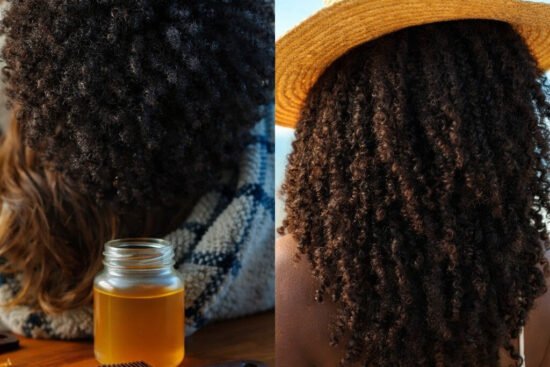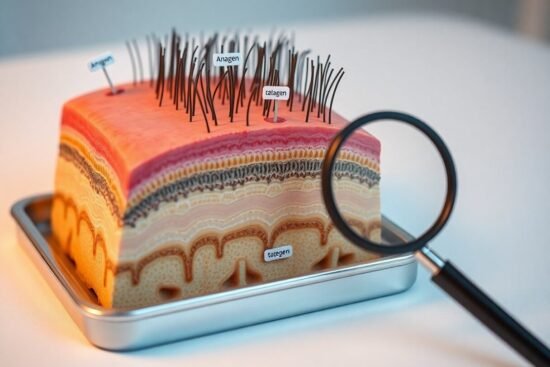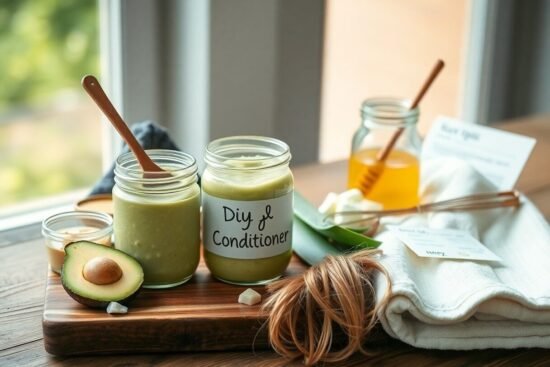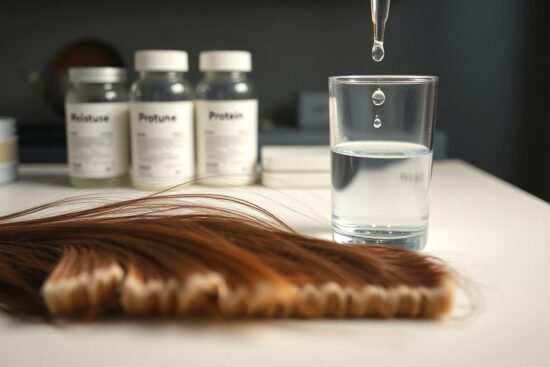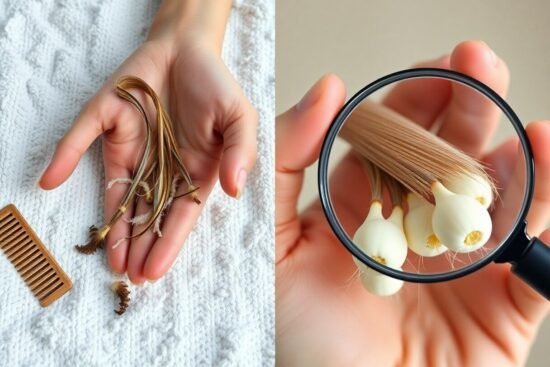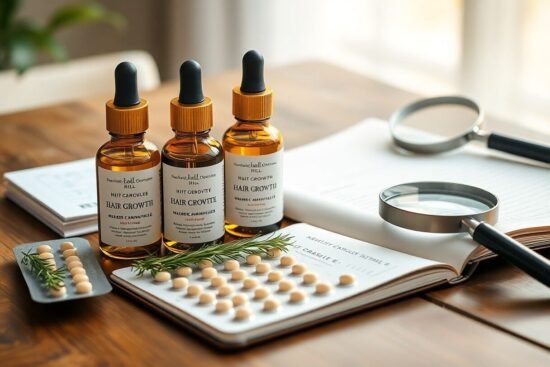
Are you a black woman on a quest for luscious, flourishing hair? Look no further! This article explores the key factors that promote hair growth specifically for African American hair. From natural remedies to effective hair products, we’ve got you covered. So, if you’re ready to unlock the secrets to healthy and vibrant hair, read on!
Understanding African American Hair
The unique structure of African American hair
African American hair is known for its unique structure, which sets it apart from other hair types. The hair is typically highly textured, with a natural curl pattern that can range from tight coils to loose waves. This texture is a result of the hair follicles being oval or flat-shaped, as opposed to the round follicles found in other ethnicities. The hair shafts are also generally thicker and more prone to dryness and breakage.
Common problems faced by African American hair
African American hair often faces specific challenges due to its unique structure. One of the most common issues is dryness, as the natural oils produced by the scalp have a harder time reaching the ends of the hair due to the curls and coils. This can lead to increased brittleness and breakage. Another challenge is the susceptibility to damage caused by heat styling tools, harsh chemicals, and over-manipulation. These factors can cause split ends, breakage, and thinning of the hair.
The impact of Genetics on African American hair growth
Genetics play a significant role in determining the growth and characteristics of African American hair. Factors such as hair density, curl pattern, and texture are largely determined by the genes inherited from both parents. It is important to understand that everyone’s hair is unique, and not all African American hair follows the same growth patterns. Some individuals may naturally have faster hair growth, while others may experience slower growth. Genetics can also influence the natural thickness and strength of the hair strands.
The Role of a Healthy Diet in Promoting Hair Growth
Foods rich in protein and their impact on hair growth
A balanced and nutritious diet plays a crucial role in promoting hair growth, and this holds true for African American hair as well. Protein is an essential nutrient that aids in strengthening the hair shaft and promoting its growth. Foods rich in protein, such as lean meats, fish, eggs, beans, and nuts, provide the necessary building blocks for healthy hair growth. Including these protein-rich foods in your diet can help improve the strength and overall health of your African American hair.
Vitamins and minerals essential for healthy hair
In addition to protein, certain vitamins and minerals are vital for maintaining healthy hair. Vitamin A is crucial for the production of sebum, the natural oil that moisturizes the scalp and prevents dryness. B vitamins, particularly biotin, play a significant role in promoting hair growth and preventing hair loss. Vitamin E and C are antioxidants that help protect the hair follicles from damage caused by free radicals. Minerals such as zinc and iron are also essential for healthy hair growth. Including a variety of fruits, vegetables, whole grains, and legumes in your diet can provide the necessary vitamins and minerals for promoting hair growth.
Influence of hydration and water intake on hair health
Staying hydrated is not only essential for overall health but also impacts the health of your hair. Dehydration can lead to dryness and brittleness, making African American hair more prone to breakage. It is important to drink an adequate amount of water daily to maintain hydration and support healthy hair growth. Additionally, using moisturizing hair products and deep conditioning treatments can help improve the moisture levels in the hair and prevent dryness and breakage.
Importance of a Consistent Hair Care Routine
Implementing a routine that promotes hair growth
Establishing a consistent hair care routine is crucial for promoting hair growth and maintaining the health of African American hair. This routine should include regular cleansing, conditioning, and moisturizing to keep the hair and scalp in optimal condition. It is recommended to use sulfate-free shampoos that are gentle on the hair and scalp. Following the shampoo with a moisturizing conditioner is important to restore moisture to the hair and improve its manageability. Additionally, incorporating regular deep conditioning treatments can provide enhanced hydration and nourishment to the hair strands.
The relevance of regular trimming to remove split ends
To maintain the health and promote growth of African American hair, regular trimming of split ends is essential. Split ends occur when the hair shaft becomes damaged and breaks into two or more strands. If not addressed promptly, split ends can lead to further breakage and hinder hair growth. Trimming the hair every 8-12 weeks helps to remove the damaged ends and prevent split ends from traveling up the shaft. This allows the hair to grow longer and healthier.
Achieving balance: Understanding the correct frequency of washing African American hair
Finding the right balance when it comes to washing African American hair is important to maintain its health and maximize growth. Washing the hair too frequently can strip it of its natural oils, leading to dryness and breakage. On the other hand, going too long between washes can result in a buildup of dirt, oils, and products, which can clog the hair follicles and hinder growth. It is generally recommended to wash African American hair every 1-2 weeks, adjusting the frequency based on individual needs and hair type.
Choosing the Right Hair Products for African American Hair
Role of moisture-rich hair products
Moisture is crucial for the health and growth of African American hair. Therefore, using moisture-rich hair products is essential to keep the hair hydrated and prevent dryness and breakage. Look for shampoos and conditioners specifically formulated for African American hair, as they typically contain ingredients that provide intense hydration. Moisturizing leave-in conditioners, hair creams, and oils can also be used to seal in moisture and keep the hair strands hydrated throughout the day.
Importance of using Sulfate-free Shampoos
Sulfates are harsh detergents often found in shampoos that can strip the hair of its natural oils and cause dryness. For African American hair, which is prone to dryness, it is recommended to use sulfate-free shampoos. These gentler cleansers effectively remove dirt and build-up without stripping the hair of its moisture. Opting for sulfate-free shampoos helps maintain the natural oils in the hair and promotes a healthy scalp.
How to select the appropriate conditioner for your hair type
Choosing the right conditioner is crucial for effectively moisturizing and nourishing African American hair. Different hair types within the African American community may have varying needs when it comes to conditioners. For those with coarser, thicker hair, a rich and creamy conditioner is recommended to provide deep hydration and manageability. Fine or low-porosity hair may benefit from lightweight conditioners that moisturize without weighing the hair down. It is important to consider your specific hair type and needs when selecting a conditioner to ensure optimal results.
The use of natural oils in hair care products
Natural oils are highly beneficial for African American hair due to their moisturizing and nourishing properties. Oils such as coconut, jojoba, argan, and castor oil can all provide hydration, improve hair elasticity, and promote healthy hair growth. These oils can be used in various ways, such as pre-shampoo treatments, scalp massages, or as a sealant after moisturizing the hair. Adding natural oils to your hair care routine can help combat dryness, minimize breakage, and improve the overall health of your African American hair.
Influence of Protective Hairstyles
What are protective hairstyles and their benefits
Protective hairstyles are styles that help protect the ends of the hair and minimize manipulation, reducing the risk of breakage and damage. These styles often involve tucking the ends away, such as braids, twists, buns, or updos. The benefits of protective hairstyles for African American hair are numerous. They help retain moisture, reduce friction and tension, and allow the hair to rest and grow without constant manipulation. Protective hairstyles can also contribute to length retention and overall hair health.
Steps to correctly install and maintain protective hairstyles
Proper installation and maintenance are key to getting the most out of protective hairstyles. Before installing a protective style, it is important to ensure that the hair is thoroughly cleansed, conditioned, and moisturized. This helps create a healthy foundation for the style and promotes optimal hair growth. While the protective style is in place, it is important to regularly moisturize the hair and scalp to prevent dryness. It is also essential to avoid excessive tension or pulling on the hair during the installation or removal process.
Common protective styles that promote hair growth
There are several popular protective styles that are known for promoting hair growth in African American hair. Box braids, Senegalese twists, and faux locs are all examples of protective styles that can help retain length and minimize breakage. These styles offer versatility and can be worn for extended periods, allowing the hair to grow and thrive. Additionally, wearing silk or satin bonnets or using satin pillowcases during sleep can further protect the hair from friction and prevent moisture loss.
Advantages of Deep Conditioning Treatments
Understanding Deep Conditioning treatments
Deep conditioning treatments are intensive treatments that provide deep hydration and nourishment to the hair. These treatments help repair damage, restore moisture, and improve the overall health of African American hair. Deep conditioners are typically formulated with ingredients such as shea butter, coconut oil, and protein complexes that penetrate the hair shaft and provide intense hydration and strength. These treatments are often left on the hair for an extended period, allowing the ingredients to fully penetrate and work their magic.
Frequency and methods of applying deep conditioning treatments
The frequency of deep conditioning treatments depends on the needs and condition of your hair. As a general guideline, it is recommended to incorporate deep conditioning into your hair care routine once every 1-2 weeks for optimal results. However, if your hair is particularly dry, damaged, or has been subjected to heat styling or chemical treatments, more frequent deep conditioning may be necessary. Apply the deep conditioner to freshly washed hair, distributing it evenly from root to tip. Cover the hair with a shower cap or plastic wrap to trap heat and enhance absorption. Leave the treatment on for the recommended time, then rinse thoroughly.
Choosing the ideal products for deep conditioning
When selecting products for deep conditioning treatments, it is important to consider the specific needs of your hair. Look for deep conditioners that are specifically formulated for African American hair and contain nourishing ingredients. Moisturizing deep conditioners with ingredients like shea butter, avocado oil, and aloe vera can provide the needed hydration and replenishment. If your hair is protein-sensitive, opt for protein-free deep conditioners to avoid potential stiffness or dryness. Experiment with different products to find the one that works best for your hair, and consider incorporating DIY deep conditioning treatments using natural ingredients as well.
Importance of Scalp Care
Understanding the correlation between scalp health and hair growth
The health of the scalp plays a critical role in supporting healthy hair growth. The scalp is the foundation from which the hair follicles emerge, and its condition directly impacts the quality and growth of the hair. A healthy scalp is characterized by good circulation, a balanced pH level, and sufficient oil production. When the scalp is properly cared for, it creates an optimal environment for hair growth. Neglecting scalp health can lead to issues such as dryness, inflammation, and clogged hair follicles, all of which can impede hair growth and result in additional hair problems.
Recommended practices for maintaining a healthy scalp
To maintain a healthy scalp, it is important to incorporate certain practices into your hair care routine. Regular cleansing is essential to remove dirt, product buildup, and excess oils from the scalp. However, it is crucial to avoid overwashing, as this can strip the scalp of its natural oils and contribute to dryness. Massaging the scalp during shampooing or using a scalp brush can help stimulate blood flow and promote the health of the hair follicles. Additionally, incorporating scalp treatments, such as exfoliating scrubs or serums, can help remove dead skin cells, unclog follicles, and promote a healthy scalp environment.
Products for promoting a healthy scalp environment
Using the right products can make a significant difference in maintaining a healthy scalp. Look for shampoos and conditioners that are specifically formulated to promote scalp health. These products often contain ingredients such as tea tree oil, peppermint oil, or salicylic acid, which help soothe irritation, control dandruff, and maintain a balanced scalp pH. Scalp serums or tonics can also be beneficial in nourishing the scalp and promoting a healthy environment for hair growth. It is important to choose products that are suitable for your specific scalp needs and hair type.
Lessons on Low-manipulation Styling
Exploring the concept of low-manipulation styling
Low-manipulation styling refers to hairstyles and practices that minimize excessive handling and manipulation of the hair. This approach aims to reduce stress on the hair shaft, minimize breakage, and promote hair growth. Low-manipulation styles often involve simple, protective hairstyles that do not require constant combing, brushing, or heat styling. By minimizing manipulation, the hair has the opportunity to rest and grow without excessive stress or damage.
Variety of low manipulation styles for African American hair
There is a wide range of low manipulation styles that are popular among individuals with African American hair. Two-strand twists, bantu knots, crown braids, and buns are all examples of hairstyles that require minimal manipulation and promote hair growth. These styles can be worn for extended periods, allowing the hair to thrive. Additionally, incorporating protective accessories such as headbands, scarves, or silk wraps can help keep the hair in place and reduce the need for constant manipulation. By embracing low-manipulation styling, you can give your hair a break while still looking stylish.
Benefits of adopting low manipulation styles
Adopting low manipulation styles offers numerous benefits for African American hair. By reducing excessive manipulation, the hair is less prone to breakage, split ends, and heat damage. Low manipulation styles also help to retain moisture in the hair, as constant manipulation can disturb the natural oils and lead to dryness. These styles also promote length retention, as the ends of the hair are protected and less likely to become damaged or split. Furthermore, low manipulation styling provides a convenient and time-saving option for individuals with busy lifestyles, as they require less daily maintenance and styling.
The Impact of Lifestyle Factors on Hair Growth
Influence of physical activity on hair growth
It may come as a surprise, but physical activity can have a positive impact on hair growth for African American hair. Regular exercise improves blood circulation, including to the scalp, which is crucial for delivering essential nutrients and oxygen to the hair follicles. This increased blood flow can enhance hair growth and contribute to a healthier scalp environment. Additionally, exercise helps alleviate stress, which can have detrimental effects on overall hair health and growth. So, incorporating regular physical activity into your routine not only benefits your overall wellbeing but can also contribute to the growth and health of your African American hair.
Effects of stress and sleep deprivation on hair health
Stress and sleep deprivation can have significant negative effects on the health of African American hair. When the body is under stress, the hair follicles can enter a resting phase, resulting in reduced hair growth and increased shedding. Chronic stress can also lead to conditions such as telogen effluvium, which causes excessive hair shedding. Similarly, sleep deprivation interrupts the hair growth cycle and can lead to hair loss and thinning. It is important to prioritize stress management techniques, such as meditation, exercise, and self-care, as well as ensuring an adequate amount of quality sleep each night to support healthy hair growth.
Impact of smoking and alcohol consumption on hair growth
Smoking and excessive alcohol consumption can negatively impact hair growth for individuals with African American hair. Smoking exposes the body to harmful toxins and chemicals, which can restrict blood flow and hinder the delivery of nutrients to the hair follicles. This can result in weakened hair follicles, reduced hair growth, and increased risk of hair loss. Similarly, excessive alcohol consumption can dehydrate the body and strip the hair of moisture, leading to dryness and brittleness. It is important to minimize or eliminate these habits to support optimal hair growth and overall health.
Consulting a Trichologist or Dermatologist
Recognizing when professional help is needed
While it is possible to care for your African American hair effectively on your own, there may be instances where professional help is necessary. If you are experiencing persistent hair problems such as excessive hair loss, scalp issues, or unexplained changes in hair texture, it is advisable to seek assistance from a trichologist or dermatologist. These professionals specialize in diagnosing and treating hair and scalp conditions and can provide tailored recommendations and treatments based on your specific needs. They can help identify any underlying issues that may be hindering hair growth and provide guidance on the best course of action.
Role of a trichologist/dermatologist in promoting healthy hair growth
Trichologists and dermatologists play a vital role in promoting healthy hair growth for individuals with African American hair. They have in-depth knowledge of hair and scalp conditions and can diagnose and treat various issues that may be affecting hair growth. They can provide personalized advice on the most effective hair care routine, recommend specific treatments or procedures, and prescribe medications if necessary. Consulting a trichologist or dermatologist can provide valuable insights into the unique needs of your hair and scalp and help you address any concerns or issues.
Understanding common hair disorders and their treatments
Hair disorders can arise due to a variety of factors and may require professional intervention for effective treatment. Trichologists and dermatologists can diagnose and treat common hair disorders that may affect individuals with African American hair. Some of these disorders include alopecia, dandruff, seborrheic dermatitis, and traction alopecia. By identifying the underlying cause of the hair disorder, these professionals can develop appropriate treatment plans that may involve lifestyle changes, topical medications, or in some cases, specialized procedures or therapies. Seeking professional guidance ensures that you receive the appropriate treatment and care for your specific hair disorder.
In conclusion, understanding and properly caring for African American hair is key to promoting hair growth and maintaining its health. By recognizing the unique structure of African American hair, addressing common problems, and considering genetic factors, you can tailor your hair care routine to meet the specific needs of your hair. Emphasizing a healthy diet, choosing the right hair products, and incorporating protective hairstyles can contribute to the overall health and growth of your hair. Additionally, paying attention to scalp care, adopting low-manipulation styling, and considering the influence of lifestyle factors can further support optimal hair growth. And, when needed, consulting a trichologist or dermatologist can provide professional guidance and assistance in maintaining healthy African American hair. With the right knowledge and practices, you can nurture and enhance the natural beauty of your African American hair.






